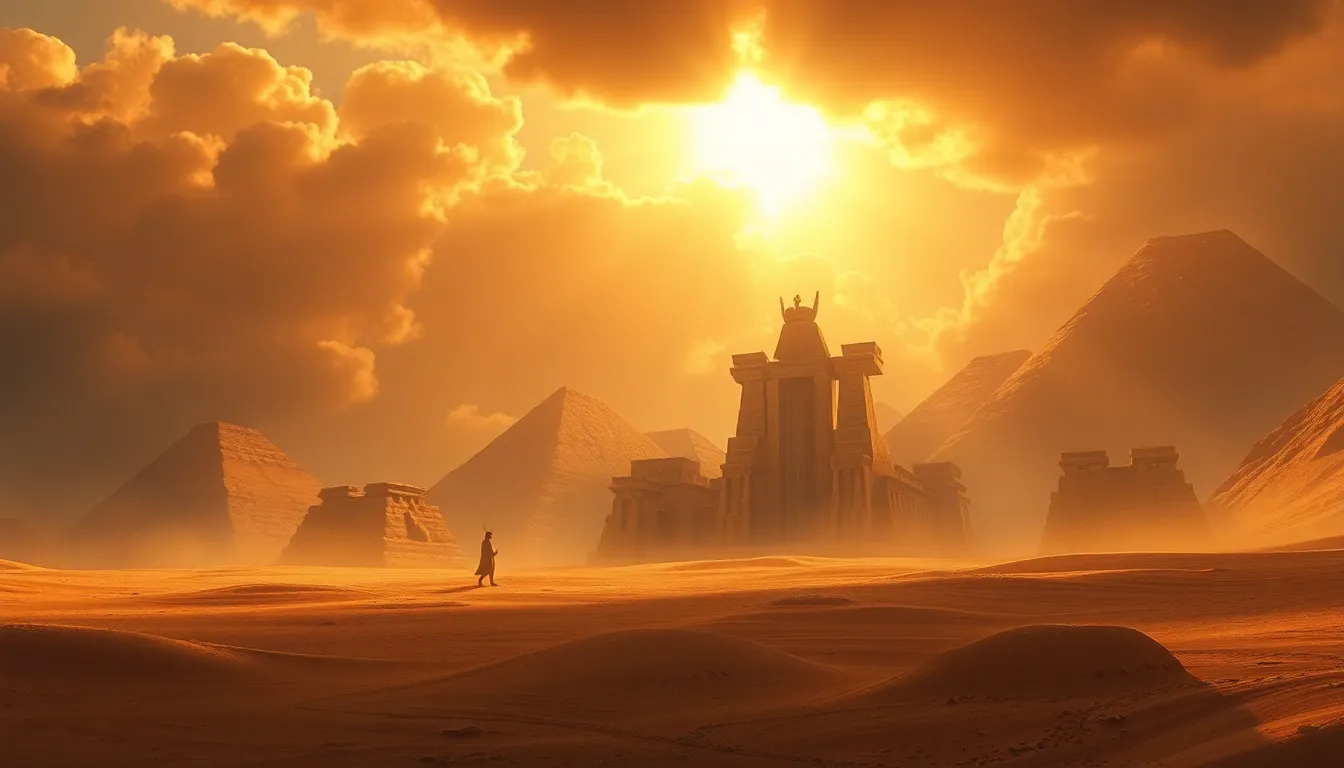The Myth of the Divine King: A Cultural Reflection
I. Introduction
The concept of the Divine King has fascinated historians, anthropologists, and scholars of religion for centuries. This archetype, a ruler who embodies divine attributes and is often regarded as a semi-divine or divine being, has played a pivotal role in shaping various civilizations. The Divine King serves not only as a political leader but also as a spiritual figure who connects the earthly realm with the divine.
The purpose of this article is to explore the cultural implications and historical context of the Divine King myth, examining how this figure has influenced governance, religion, and societal norms throughout history. We will delve into the historical origins of the myth, its symbolism, its presence across different cultures, its decline, and its modern interpretations.
This article will unfold in several sections, each addressing different aspects of the Divine King myth and its relevance in contemporary society.
II. Historical Origins of the Divine King Myth
The myth of the Divine King has its roots in ancient civilizations, with notable examples found in Mesopotamia and Egypt. In these societies, rulers were often seen as representatives of the gods on Earth, and their authority was legitimized through religious beliefs.
In ancient Egypt, for example, Pharaohs were considered to be divine incarnations, believed to be the living embodiment of deities such as Horus and Osiris. This divine status was crucial in maintaining order and stability within the kingdom.
- Mesopotamia: Kings like Hammurabi were seen as chosen by the gods to enforce divine law.
- Egypt: Pharaohs were worshipped as gods, ensuring their decisions were beyond question.
The role of religion in legitimizing kingship cannot be overstated. As societies evolved, so did the myth of the Divine King. It adapted to the cultural and political landscapes of various civilizations, from the ancient Greeks to the medieval European monarchies.
III. The Symbolism of Sacred Kingship
The Divine King is often imbued with several divine attributes, such as wisdom, justice, and benevolence. These attributes not only enhance the ruler’s authority but also serve to unify the populace under a common belief in their leader’s divine right to rule.
The interplay between religion, power, and governance is evident in how these leaders are portrayed in art and literature. Sacred kingship is celebrated through various forms, including:
- Religious texts that depict rulers as chosen by the gods.
- Monuments and art that symbolize the divine connection of the king.
- Ceremonies and rituals that reinforce the sacred nature of kingship.
IV. The Divine King in Different Cultures
A comparative analysis of the Divine King myth reveals its presence in diverse cultures. In Hinduism, for instance, rulers are often seen as manifestations of divine qualities, while in Christianity, kingship can be linked to Christ-like figures who embody moral and spiritual authority.
Case Studies of Specific Rulers
- Ashoka the Great: An Indian emperor who embraced Buddhism and ruled with a sense of divine moral duty.
- Charlemagne: Crowned Emperor by the Pope, he blended royal power with divine sanction in medieval Europe.
The impact of cultural narratives on perceptions of leadership is profound. These narratives shape not only the authority of leaders but also the expectations and beliefs of the governed.
V. The Decline of the Divine King Concept
Historical events, such as the rise of secularism and the Enlightenment, have led to the deconstruction of the Divine King myth. Monarchies that once derived their power from divine right began to face challenges from emerging democratic ideals.
Key factors contributing to this decline include:
- The questioning of absolute authority by philosophers and revolutionaries.
- The establishment of laws that separated church and state.
- The emergence of constitutional monarchies that diluted the divine aspect of kingship.
VI. The Psychological and Social Implications
The Divine King myth has significant implications for societal norms and values. It shapes the collective consciousness, instilling beliefs in authority, governance, and social order. The psychological aspects of belief in divine authority can create a sense of stability and security among the populace.
However, reliance on such myths can also lead to:
- A dependence on charismatic leadership.
- The potential for abuse of power in the name of divine right.
- Challenges in fostering accountability in governance.
VII. Contemporary Reflections and Relevance
Despite the decline of the Divine King concept, archetypes of divine kingship persist in modern leadership. Contemporary leaders may embody aspects of the myth, whether through their charisma, moral authority, or the way they connect with followers.
Examples of contemporary leaders who reflect aspects of the Divine King myth include:
- Nelson Mandela: Revered for his moral leadership and reconciliation efforts in South Africa.
- Martin Luther King Jr.: A figure who inspired social change through a deeply moral and spiritual framework.
The cultural reflections of the Divine King myth can also be seen in media, politics, and societal narratives today, influencing public perceptions and expectations of leadership.
VIII. Conclusion
In summary, the myth of the Divine King has shaped civilizations and their governance structures for millennia. From its historical origins to its modern interpretations, this archetype reflects the complex relationship between power, religion, and society.
The enduring legacy of the Divine King myth in contemporary culture serves as a reminder of the human desire for strong, moral leadership. As we continue to navigate the complexities of governance and authority, understanding the implications of this myth will be vital for the future of leadership and societal development.




